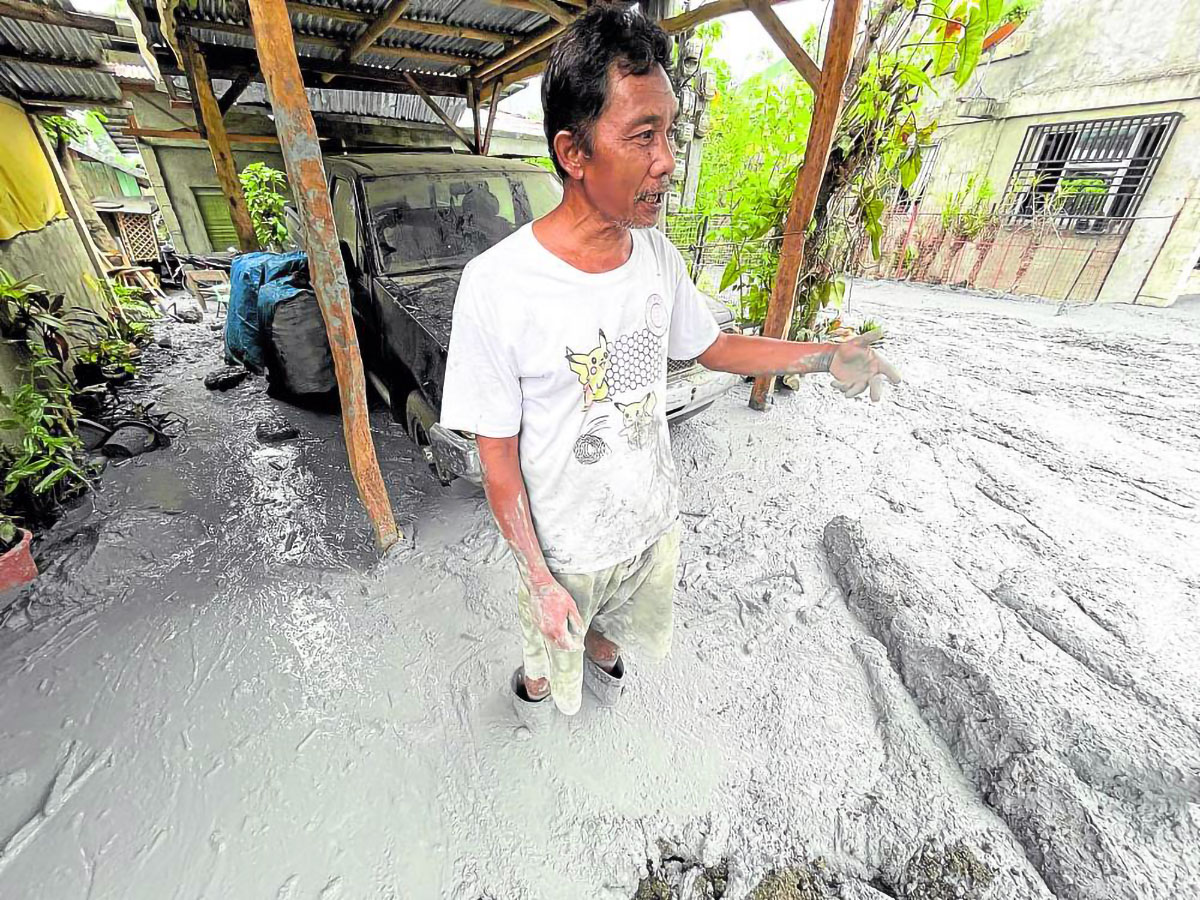
DISRUPTION Villagers at Barangay Biak na Bato in La Castellana, Negros Occidental, have to endure the disruption caused by the almost knee-deep lahar that hit their community on Thursday, three days after the eruption of Mt. Kanlaon. —CONTRIBUTED PHOTO
BACOLOD CITY — About 3,300 residents living in communities within Mt. Kanlaon’s 4- to 6-kilometer permanent danger zone in La Castellana town, Negros Occidental, have been preemptively evacuated following the volcano’s eruption early this week.
A curfew has also been imposed in the town from 9 p.m. to 4 a.m. to ensure the safety of residents.
La Castellana Mayor Rhummyla Mangilimutan said the local government had prioritized the elderly, women, and children in the evacuation.
Male family members remained in the villages of Biak na Bato and Cabagnaan to tend to their farm animals and their crops, many of which had wilted from the ashfall following Kanlaon’s eruption on Monday night.
READ: Kanlaon Volcano blast ruins crops, taints water
Mangilimutan said the residents in these areas were evacuated on Wednesday and Thursday because they live in villages in the direct path of lahar flow and are most vulnerable to another eruption.
“They are the people who could be trapped should the volcano erupt again,” the mayor said.
La Castellana is the remaining local government in Negros Occidental with evacuees.
Gov. Eugenio Jose Lacson said potable water remains to be the most urgent need of La Castellana.
Lacson said he was grateful that other local governments in the province were extending assistance to the town, where some of its communities were hit by lahar after ash and other volcanic debris were washed down by heavy rains from the volcano’s slopes.
On Friday, Bacolod City Mayor Alfredo Abelardo Benitez and his son, Victorias Mayor Javier Miguel Benitez, president of the Negros Association of Chief Executives, delivered aid to La Castellana.
Crop damage
Jose Erlito Seririta, 62, of Barangay Cabagnaan, said his 1,500 coffee trees, which were in the flowering stage and planted at the foot of the volcano, had dried up and wilted due to the ashfall.
“Hot ash rained on my plants during the eruption on Monday,” he said.
Seririta lamented that while his coffee trees survived the long dry spell accompanying the El Niño weather phenomenon, these were destroyed by the volcano’s wrath. Since his farm has been devastated, Seririta plans to find another job so his family can survive.
Earlier, Lacson said the province posted about P10-million worth of agriculture losses following the eruption.
In La Carlota City, Mayor Rex Jalandoon said that while Mt. Kanlaon was still under Alert Level 2 (moderate level of volcanic unrest), it had simmered down with fewer earthquakes and sulfur dioxide emissions.
He said the 264 evacuees in La Carlota City had returned home on Friday.
But the city, the mayor said, remains on alert for any volcanic activity.
Jalandoon said that their problem with their water supply had been resolved. “We had the water tested and it was safe to drink,” he said.
The city has also purchased portable water filters while the Philippine Red Cross has brought a filtering system to the town.